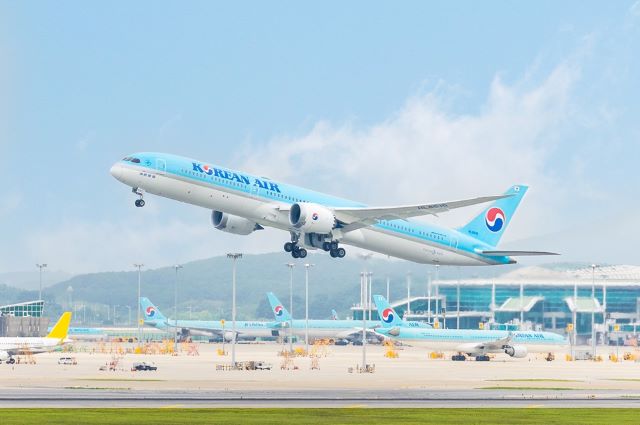Korean Air expects uncertainties in the business environment during 2025, citing changes in global politics, it said in its earnings report.
During the year, Korean Air reported record full year revenues of KRW 16.1 trillion ($10.9bn), representing an increase of 10.5% in comparison to 2023. The airline also reported an operating profit of KRW 1.9 trillion ($1.3bn), increasing 22.5% in comparison to the year prior. For the year, the airline posted a net income of KRW 1.2 trillion ($853.2 million), an increase of 36.8%.
Looking at the year's fourth quarter performance, the airline saw operating profits grow by 159% on levels recorded in 2023. Operating profit totalled KRW 476.5bn ($324 million).
During the quarter, cargo revenue was 9% higher than the same period a year earlier, while passenger revenue declined 3%. This resulted in total revenue being up marginally by 1% compared to 2023, totalling KRW 4.02 trillion ($2.7bn).
Korean noted that cargo volumes remained stable, supported by sustained e-commerce demand from China and seasonal year-end retail surge.
“Despite the seasonal off-peak period, the airline maintained stable profitability by strategically adjusting capacity to meet strong winter tourism demand and enhancing premium class service to improve load factors,” said the airline.
In 2024, Korean completed the acquisition of rival Asiana Airlines in December to become one of Asia's biggest carriers. The merger was complete after Korean paid an additional KRW 800bn ($559.4 million). This added on to its advance payment of KRW 700bn ($489.5 million), totalling KRW 1.5 trillion ($1.05bn). As a result, the airline has acquired a 63.9% stake in the airline.
In the first quarter of 2025, the airline’s passenger business plans to maximize profits by maintaining supply on demand-intensive routes and expanding irregular flights as demand for long-haul routes continues and performance on Chinese routes is expected to recover.
Korean Air’s business plans to increase profitability by diversifying its business portfolio and operating flexible supply amid demand driven by e-commerce.

